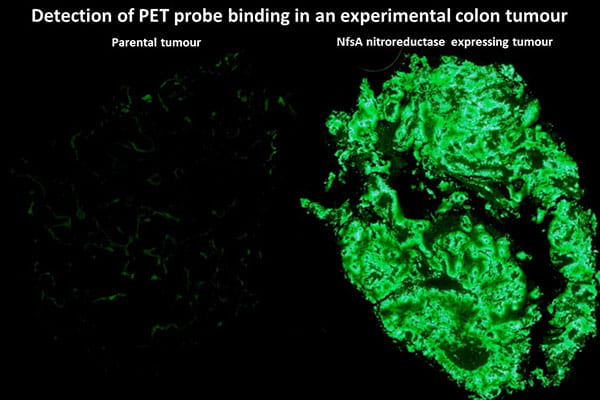Scientists at the ACSRC, in an International collaboration with Victoria Wellington University, Maastricht University (Belgium) and Nottingham University (UK), have demonstrated the potential to track gene therapy vectors using off-the-shelf PET imaging technologies. The collaboration utilised bacterial enzymes coupled with clinically available PET probes to demonstrate proof of principle. This forms part of a broader project to develop technologies for tracking and utilising the anaerobic bacterium Clostridium sporogenes as a tumour-targeted treatment. This work is published in Theranostics, a high impact Journal specialising in the integration of therapeutics and diagnostics.
Mowday AM, Copp JN, Syddall SP, Dubois LJ, Wang J, Lieuwes NG, Biemans R, Ashoorzadeh A, Abbattista MR, Williams EM, Guise CP, Lambin P, Ackerley DF, Smaill JB, Theys J, Patterson AV. E. coli nitroreductase NfsA is a reporter gene for non-invasive PET imaging in cancer gene therapy applications. Theranostics 2020; 10(23):10548-10562. doi:10.7150/thno.46826.
